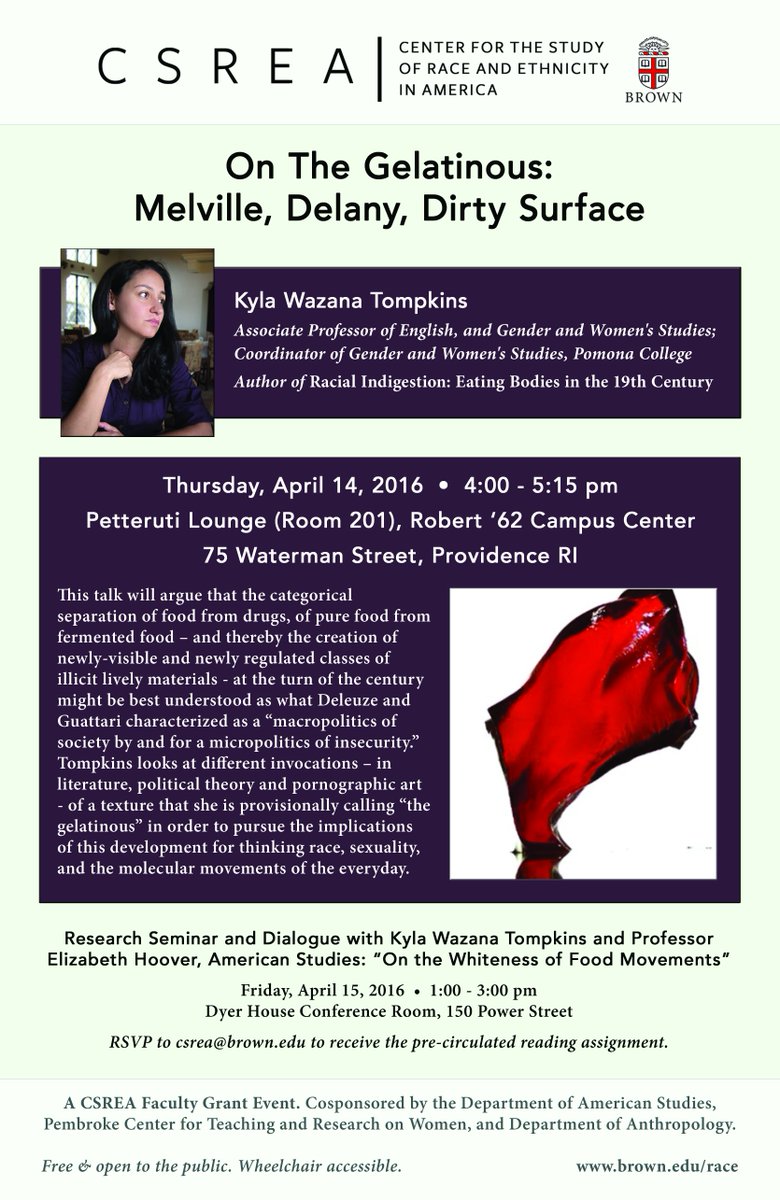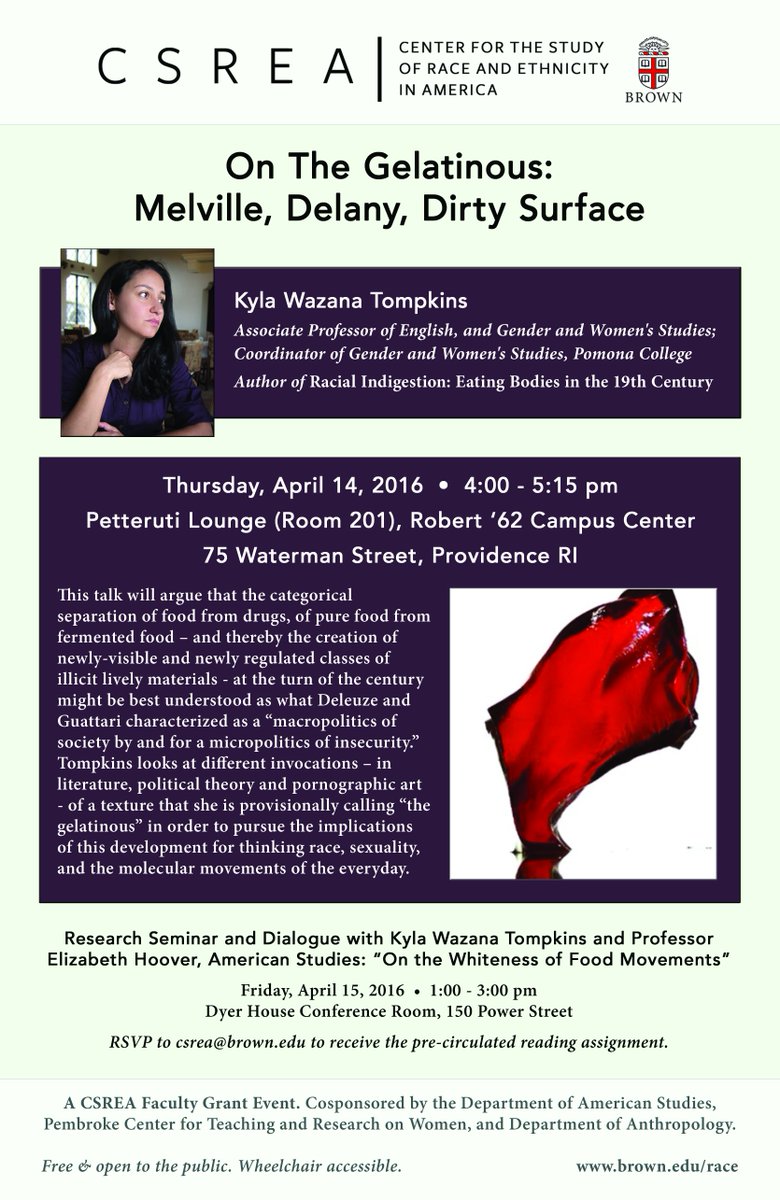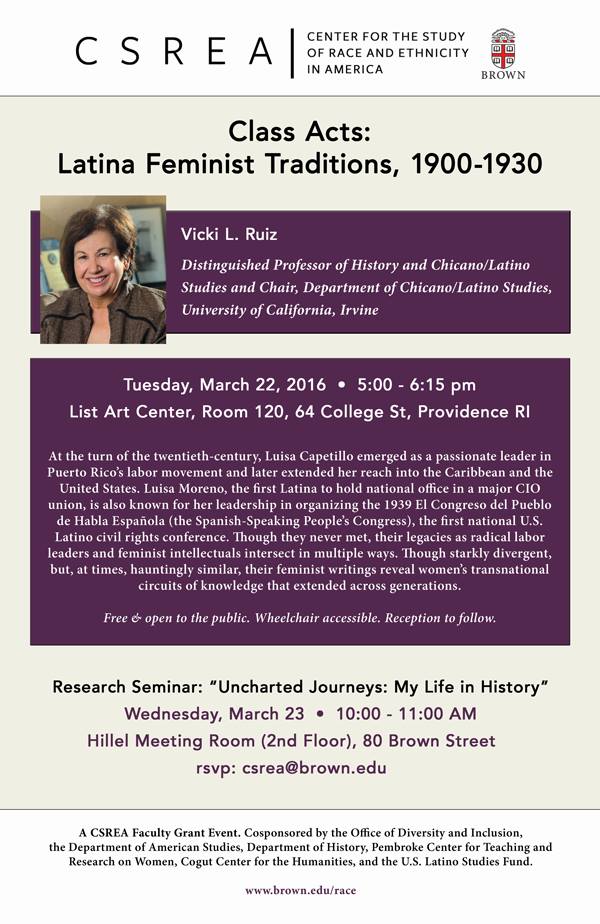Past Events
What I Am Thinking About Now: Andre Willis, "Whiteness as God: Towards a Theo-Political Understanding of American Democracy"

CSREA Conference Room, Hillel 303, 80 Brown Street
Please join us on Tuesday, April 12 at 12 - 1pm for a "What I Am Thinking About Now" presentation from Professor Andre Willis, Assistant Professor of Religious Studies, titled "Whiteness as God: Towards a Theo-Political Understanding of American Democracy".
“What I Am Thinking About Now” is an on-going informal workshop/seminar series to which faculty and graduate students are invited to present and discuss recently published work and work in progress. All are invited to attend and participate.
What I Am Thinking About Now: Iris Montero Sobrevilla, "Hummingbirds for epilepsy - and what they tell us about indigenous knowledge"
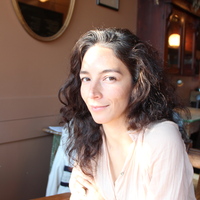
CSREA Conference Room, Hillel 303
"Hummingbirds for epilepsy - and what they tell us about indigenous knowledge"
Iris Montero Sobrevilla, Postdoctoral Fellow, Cogut Center for the Humanities
For over five centuries, the descendants of Mesoamerican civilizations have used hummingbirds to treat epilepsy. This talk explores the persistence of this animal-based remedy as a window onto indigenous notions of the natural world.
"How Structural Racism Works," Peeling Back the Layers: Racial Inequality in a New South City

Stephen Robert '62 Campus Center, Petteruti Lounge, 201
Please join us on Friday, March 25 (lunch provided at 11 am), for "How Structural Racism Works: Peeling Back the Layers: Racial Inequality in a New South City", a Conversation with Dr. Robert Korstad, Professor of Public Policy and History at Duke and Associate Director of the Samuel DuBois Cook Center on Social Equity. Robert Korstad will focus on the role of wealth as a driver of structural racism. The event will take place in the Stephen Robert '62 Campus Center, 75 Waterman Street in Peterutti Lounge. Doors will open at 11:00 am and lunch will be available.
"How Structural Racism Works," Wealth and Structural Racism
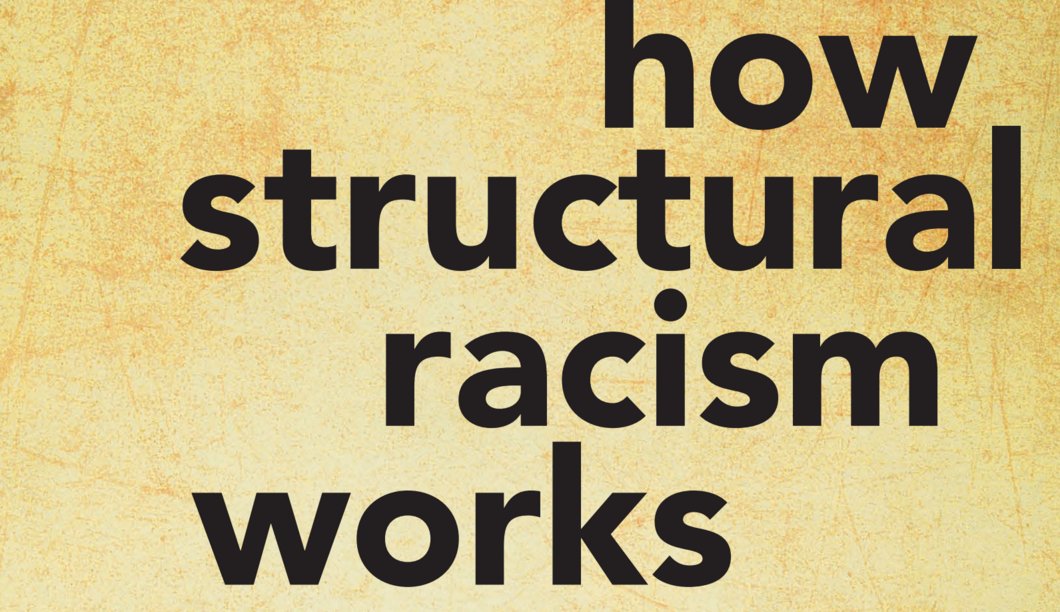
85 Waterman (IBES), Room 130
Please join us on Thursday, March 24, at 6:00 pm for "How Structural Racism Works: Wealth and Structural Racism," a lecture by Duke Professor of Economics Dr. William Darity, Jr., Samuel DuBois Cook Professor of Public Policy at Sanford School of Public Policy. The lecture will focus on how wealth inequality works intersectionally to generate other significant inequalities. Lecture will be followed by a conversation between William Darity, Jr. and Tricia Rose, Director, Center for the Study of Race and Ethnicity in America.
Research Seminar with Vicki Ruiz (UC Irvine), "Uncharted Journeys: My Life in History"
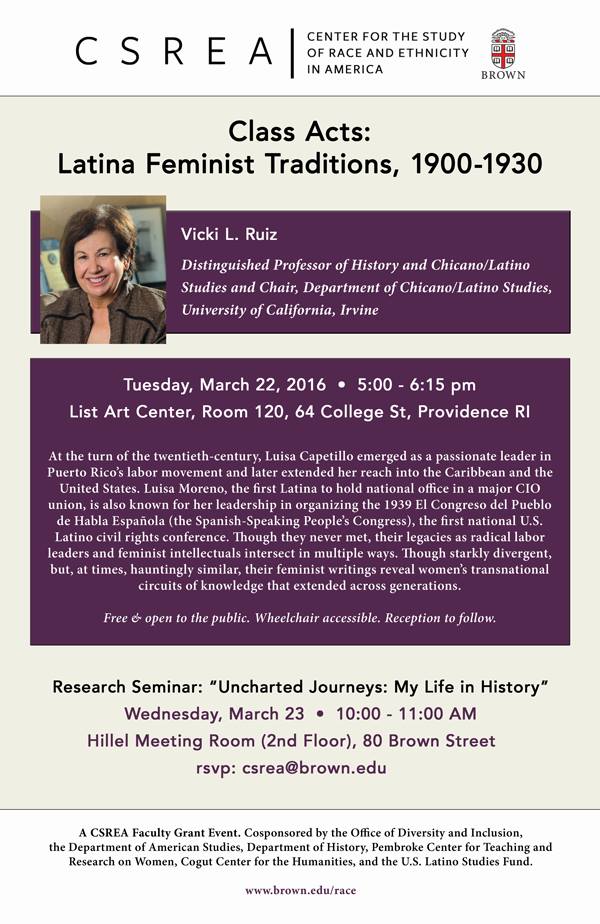
Hillel, Meeting Room
This seminar blends reflections from almost four decades in the academy with practical advice for meeting the expected and unexpected challenges (and rewards) along the way. In particular, Ruiz will focus on the ways in which to read an archive when searching for Latina sources, accessing hidden stories as well as those in plain sight. In addition, she will address the surprising consequences of oral history and the meaning of memories, real or imagined. As importantly, the seminar will underscore the power of public history and the gift of collaboration.
Research Seminar with Eric Tang (University of Texas at Austin), "From Camps to Ghettos: Thinking in Refugee Time"
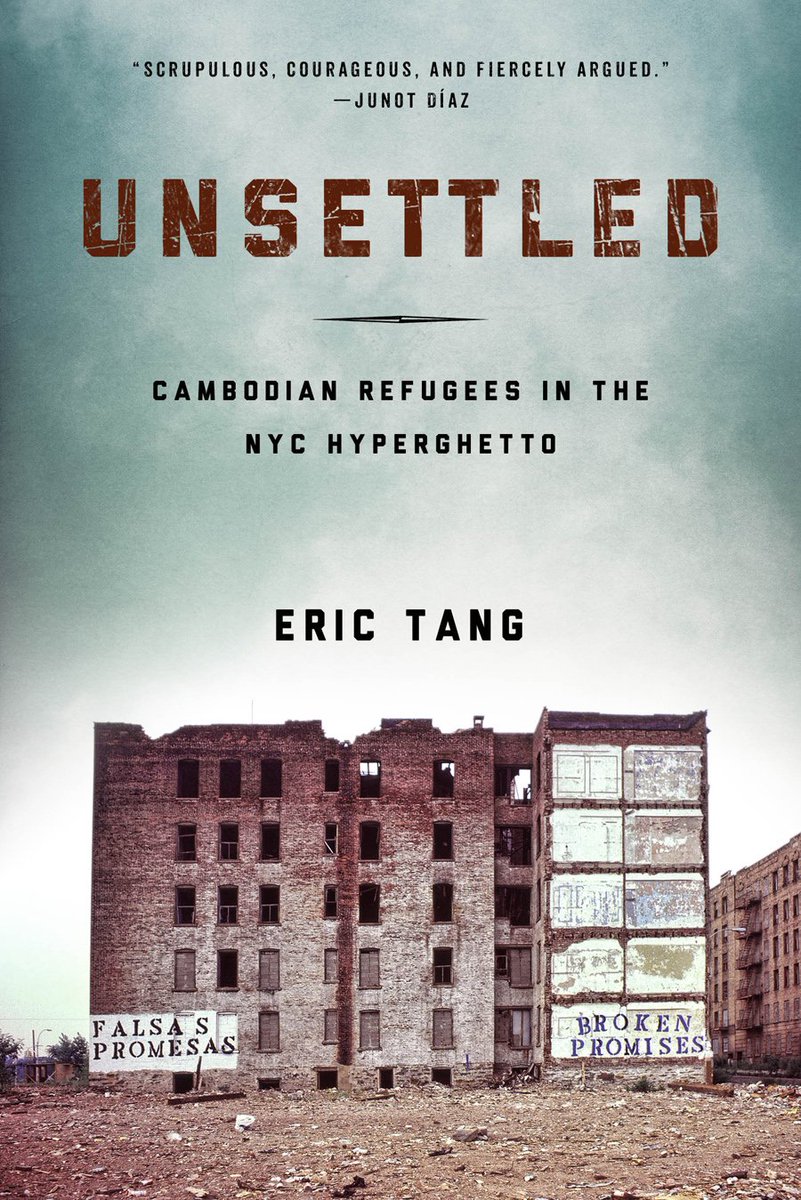
CSREA Conference Room, Hillel 303
This seminar will explore methods for researching how refugees in urban America conceive of the continuities between the past and present, between camp and ghetto—two distinct yet related, in not contiguous, territories. Tang will elaborate on the concept of "refugee temporality:" the manner in which refugees understand the long and unbroken time and space of their captivity.
Eric Tang (University of Texas at Austin), "Unsettled: The Refugee in the Hyperghetto"
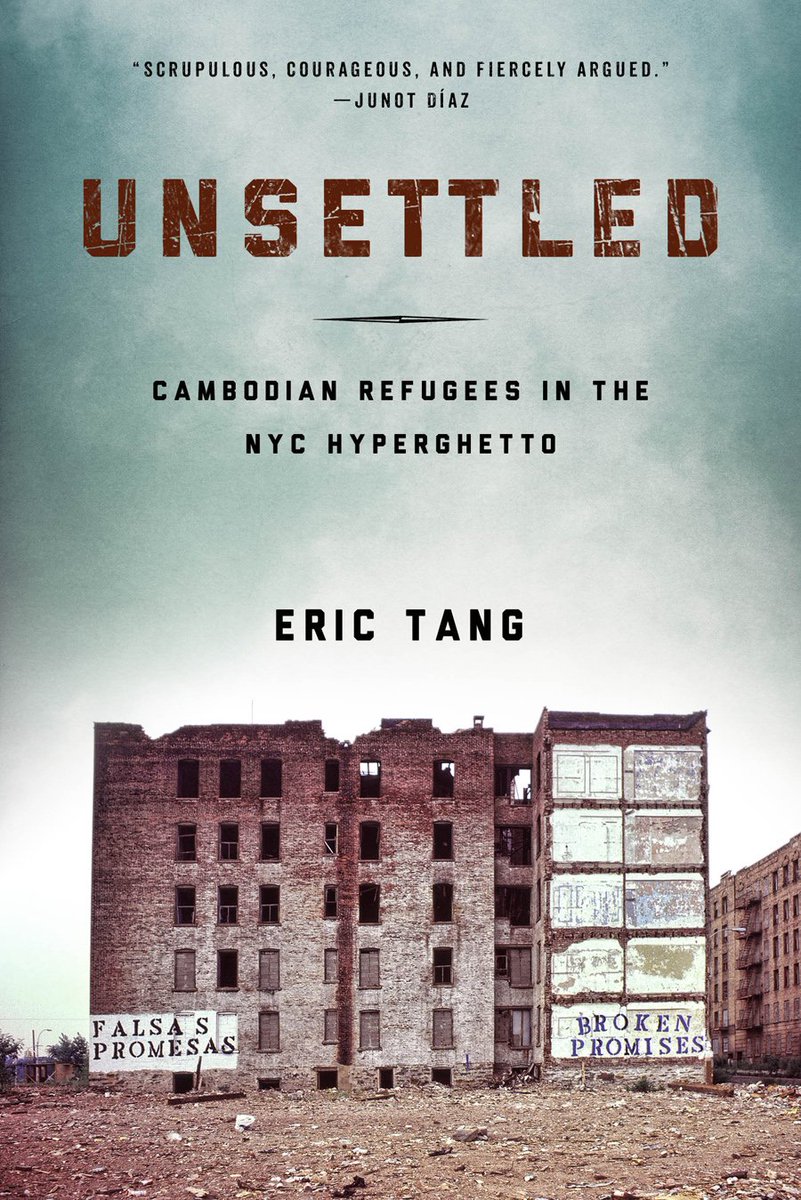
Petteruti Lounge, Stephen Robert '62 Center
Scholar-activist Eric Tang will explore themes from his new book, Unsettled: Cambodian Refugees in the NYC Hyperghetto, including the relationship between immigrant communities and African Americans as they experience common and distinct forms of state violence taking shape in America’s inner cities. Tang’s research sits at the intersection of two issues that define the current moment: the international refugee crisis and the resurgent movement against police violence in the urban United States.
Free and open to the public.

